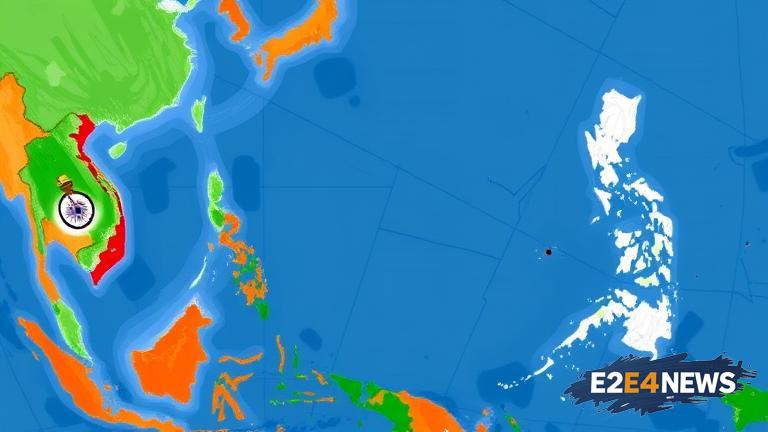India’s Indo-Pacific strategy, led by Prime Minister Narendra Modi, has been gaining momentum in recent years. The strategy aims to promote a free, open, and inclusive Indo-Pacific region, with a focus on cooperation and collaboration among nations. One of the key countries that India has been engaging with is the Philippines, with which it has been strengthening ties in various areas. The Philippines, located in the heart of Southeast Asia, is a crucial player in the Indo-Pacific region, and India’s engagement with the country is seen as a significant aspect of its overall strategy. In recent years, India and the Philippines have been cooperating on a range of issues, including defense, trade, and maritime security. The two nations have been holding regular dialogues and consultations, with a focus on promoting mutual understanding and cooperation. India has also been providing training and capacity-building programs for Philippine military personnel, with the aim of enhancing their capabilities and promoting regional security. The Philippines, on its part, has been supportive of India’s Act East policy, which aims to promote economic and strategic ties with Southeast Asia. The two nations have also been cooperating on regional and international issues, including counter-terrorism and non-proliferation. The growing ties between India and the Philippines have been welcomed by other nations in the region, who see it as a positive development for regional security and stability. The United States, in particular, has been supportive of India’s engagement with the Philippines, seeing it as a key aspect of its own Indo-Pacific strategy. China, on the other hand, has been watching the growing ties between India and the Philippines with interest, as it seeks to promote its own influence in the region. Despite the challenges and complexities of the Indo-Pacific region, India’s engagement with the Philippines is seen as a significant success story, with both nations benefiting from their cooperation. The future of India-Philippines ties looks promising, with both nations committed to promoting their strategic partnership. The cooperation between India and the Philippines is not limited to the bilateral level, but also extends to regional and international forums. The two nations have been working together in various regional organizations, including the Association of Southeast Asian Nations (ASEAN) and the East Asia Summit. India’s engagement with the Philippines is also seen as a key aspect of its overall strategy for the Indo-Pacific region, which includes promoting cooperation with other nations in the region. The Indo-Pacific region is home to some of the world’s most dynamic and rapidly growing economies, and India’s engagement with the Philippines is seen as a key aspect of its efforts to promote economic growth and development. The region is also home to some of the world’s most pressing security challenges, including terrorism and piracy, and India’s cooperation with the Philippines is seen as a key aspect of its efforts to promote regional security. Overall, India’s Indo-Pacific strategy, and its engagement with the Philippines, is seen as a significant development for regional security and stability, and is likely to have far-reaching implications for the future of the region. The strategy is also seen as a key aspect of India’s efforts to promote its own national interests, including its economic and strategic interests. The cooperation between India and the Philippines is a win-win for both nations, and is likely to promote mutual understanding and cooperation in the years to come. The future of India-Philippines ties is bright, and is likely to play a significant role in shaping the future of the Indo-Pacific region. India’s engagement with the Philippines is a key aspect of its overall strategy for the region, and is seen as a significant success story. The cooperation between the two nations is likely to continue to grow and deepen in the years to come, promoting regional security and stability, and advancing the interests of both nations.
